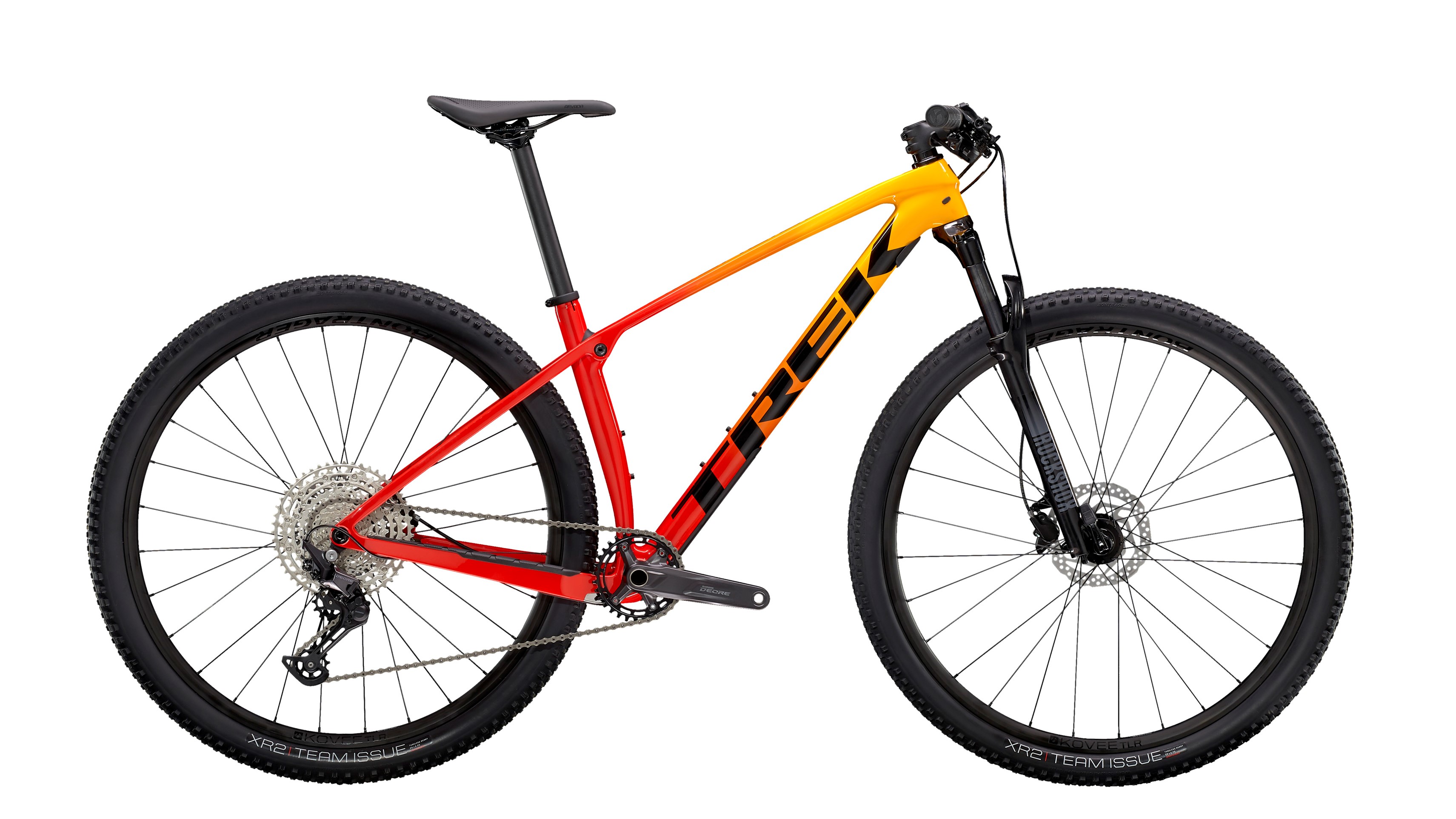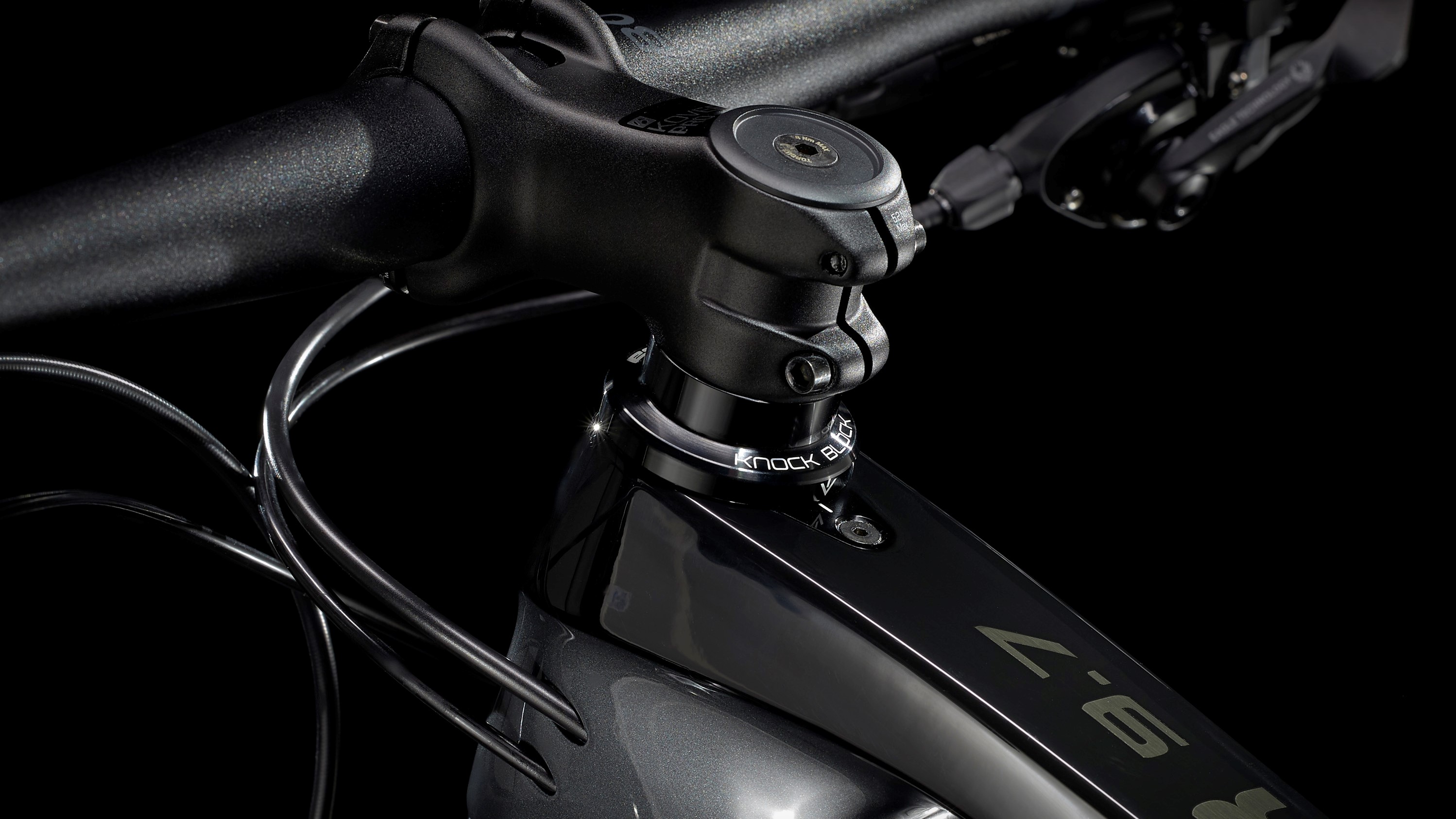Trek's Procaliber 'softail' gains a geo update
Trek's innovative Procaliber has some frame changes for the 2021 model year

Trek has upgraded its IsoSpeed-enabled Procaliber MTB range, a bike that has long been considered one of the best hardtail mountain bikes around.
Essentially the hardtail version of Trek’s Supercaliber dual-suspension XC race bike, the Procaliber features improved geometry and some industrial design changes.
The entire Procaliber range now roll 29er wheels, even on the smaller frame sizes, which had previously offered 27.5-inch wheels. Balancing the big wheels are more progressive geometry numbers, with a slightly slacker head angle and stretched reach.
Design engineers at Trek have managed to slacken the Procaliber’s head angle from 69.5- to 68.75-degrees, allowing for better rider weight distribution during technical descents.
Leveraging that more relaxed head angle are 100mm forks, featuring a 42mm offset for all frame sizes. Riders who wish to slightly overfork their Procaliber will note that the frame’s head tube is now rated for up to 110mm of front suspension travel.
The 2021 model year Procaliber might be more confidence inspiring on technical descents, thanks to its combination of slacker head angle and greater reach (up by 10mm on a size large), but its climbing geometry has not been sacrificed. With a 73.75-degree seat angle, which is nearly a degree steeper, riders will be perched in a position best suited to attacking those steep off-road climbs.

Better agility
One of the design objectives for this new Procaliber was improved agility, especially when navigating tight singletrack. To achieve this, Trek’s product team settled compact 432mm chainstays, giving the bike a compact and responsive rear end that will accommodate a 29x2.4in size tyre.
Steering responsiveness is also enhanced, thanks to a more generous angle of possible handlebar leverage. The Knock Block headset, which prevents handlebar over-rotation and potential frame damage during a crash, has seen its arc of limitation increase by 4°. This should greatly improve the Procaliber’s handling in extremely slow and technical terrain.
A valued design feature of the Procaliber which remains unchanged from the 2020 model year bike, is Trek’s Isospeed decoupling pivot. Located at the juncture between seat and top tube, this frame design detail allows for excellent pedalling efficiency and the quality of terrain compliance that would be impossible with a conventional rigid rear triangle hardtail.
- Best mountain bike tyres: all the top mountain bike tyres reviewed
- Best XC and marathon helmets: how to choose the best XC helmet for you
Trek is marketing its 2021 model year Procaliber in four build options. The entry-level Procaliber 9.5 retails for $2,000 and runs a 12-speed Shimano Deore drivetrain and RockShox Judy fork.
At $2,650 the Procaliber 9.6 upgrades to a combination Shimano SLX/XT drivetrain, Rockshox Recon Gold fork and Bontrager Kovee wheels.
Procaliber 9.7 is a significant jump in price, to $4,000. It is specced with SRAM’s GX Eagle 12-sped drivetrain, Rockshox’s Reba SL fork and Bontranger’s Kovee Elite 23 carbon wheels.
Trek’s 2021 Procaliber range peaks with the 9.8 derivative, which will only be available to European riders for the time being.
Retailing for £3,100, the 9.8 shifts via a Shimano XT 12-speed drivetrain receiving pedalling input from e*Thirteen carbon cranks, whilst up front there is a Fox 32 Stepcast Performance fork. The 9.8 also rolls Bontrager’s wider Kovee Elite carbon 30 wheels and decelerates courtesy of Shimano’s latest XT brakes.
All Trek’s 2021 model year Procalibers run 29x2.2in tyres and all but the 9.5 have remote fork lockouts. There is a frame only option too, priced at $1,499.

Lance Branquinho is a Namibian-born journalist who graduated to mountain biking after injuries curtailed his trail running. He has a weakness for British steel hardtails, especially those which only run a single gear. As well as Bike Perfect, Lance has written for MBR.com, Off-Road.cc and Cycling News.
